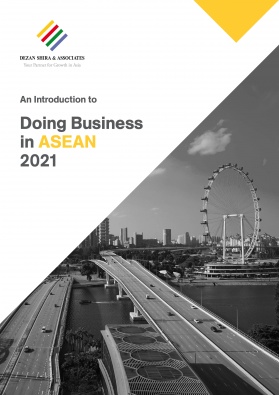Bank Indonesia Issues Regulation on Payment Systems
- Bank Indonesia issued Regulation No.22/23/PBI/2020, which aims to structure the regulatory framework of the country’s payment systems.
- This ‘umbrella’ regulation will enable BI to better mitigate potential risks in Indonesia’s financial system.
- The new regulatory framework will oversee payment systems from activity and risk-based approach instead of the previous entity-based approach.
- There are also new requirements regarding share ownership and capital for payment service providers.
On December 29, 2020, Indonesia’s central bank, Bank Indonesia (BI), issued regulation No.22/23/PBI/2020 (PBI 22/2020) pertaining to the restructuring of the regulatory framework of payment systems, including the reclassification of the activities of payment service operators.
This ‘umbrella’ regulation shifts the regulatory framework from an entity-based approach to activity and risk-based approach, enabling BI to better mitigate potential risks in the country’s financial system. The regulation also issues new requirements with regards to share ownership and capital, which could impact foreign investors in the payment services industry. The regulation will be applicable from July 1, 2021.The regulation is part of the Indonesia 2025 Payment System Blueprint, issued by BI in November 2019. Under the blueprint, BI intends to:
- Support banking digitalization;
- Support the integration of the digital economy;
- Support interlink between fintech and the banking sector;
- Ensure innovation, consumer protection, and healthy business competition; and
- Safeguard national interests in cross-border digital economy and finance transactions.
Foreign investors should be aware that BI will issue implementing regulations in 2021 to address the technical details of this regulation.
Classification of payment system operators
BI classifies payment system operators as the following:
- Payment services operators (PJP) — banks or non-bank entities that facilitate payment transactions; and
- Payment system infrastructure operators (PIP) — parties that provide the infrastructure to facilitate the transaction of funds.
Activities of payment system operators
The regulation states that a PJP can conduct any of the following activities:
- Account information services;
- Initiation of payments or acquiring services that include payment transactions;
- Account issuance services; and
- Remittance services.
Licensing for PJPs
Under the new regulation, BI will adopt a licensing system based on activities bundling:
- A category 1 license — the PJP is permitted to undertake all four aforementioned activities;
- A category 2 license — the PJP is permitted only to undertake activity one and two; and
- A category 3 license — the PJP is permitted only to undertake activity four or an activity determined by BI.
PIPs can conduct the following activities:
- Clearing services; and
- Settlement services.
Risk-based classification
PJPs and PIPs are further classified into three risk-based classification categories depending on the impact their operations would have on Indonesia’s financial and payment system.
The three categories are:
- Systemic payment system operators — payment systems that could endanger the economy if it fails;
- Critical payment system operators;
- General payment system operators — payment systems that do not pose any danger to the economy.
Qualification under any of these three categories is determined by the company’s transaction size, complexity, interconnectivity, and information system management aspects. The greater the transaction value and volume, the more likely the company will be classified as a systemic payment operator. Likewise, the smaller and size of risk, the company will be classified in the general payment systems category.
For existing licensed payment system operators, BI will give a two-year grace period to comply with the requirements under this regulation.
Self-assessment system
PBI 22/2020 has also introduced a self-assessment system for payment service providers looking to launch new products/services.
Under the self-assessment system, the company must assign a risk rating to the proposed new product/service or cooperation arrangements with other payment service providers.
Product approval applications that are deemed to be low risk need only the company to report to BI, whereas those classified as medium or high risk must gain BI approval prior to launching. The same process goes for any cooperation arrangements with other payment service providers.
Special status on ownership of non-bank PJPs
Under PBI 22/2020, a minimum of 15 percent of the shares in a non-bank PJP must be owned by Indonesian entities/individuals. Further, at least 51 percent of the shares with voting rights must be owned by Indonesian entities/individuals.
Special status on ownership of PIPs
A minimum of 80 percent of shares with voting rights in a PIP must be owned by Indonesian entities/individuals.
About Us
ASEAN Briefing is produced by Dezan Shira & Associates. The firm assists foreign investors throughout Asia and maintains offices throughout ASEAN, including in Singapore, Hanoi, Ho Chi Minh City and Jakarta. Please contact us at asia@dezshira.com or visit our website at www.dezshira.com.







